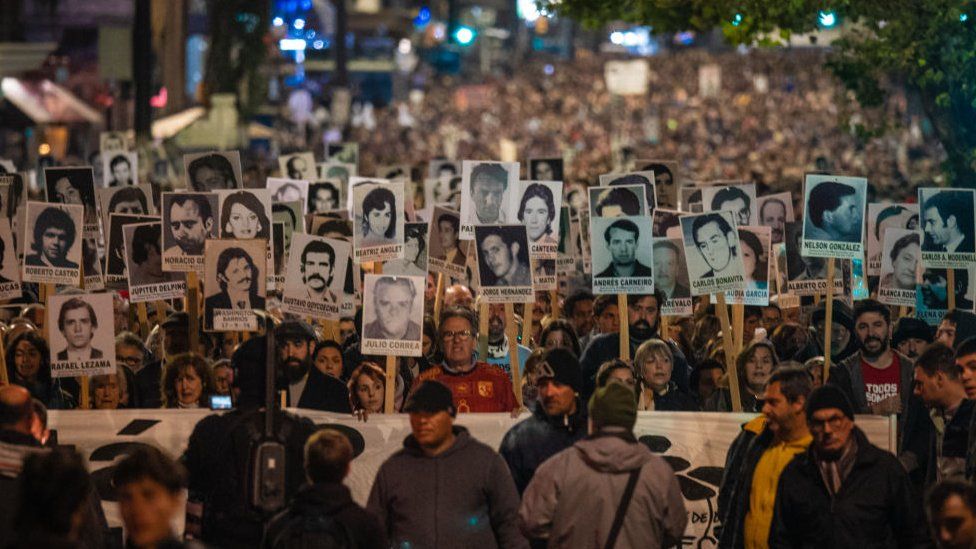-

-
-
Loading

Loading

The Uruguayan Senate has passed legislation that would allow military officers who committed human rights abuses during the country's dictatorship from 1973 to 1985 to serve their sentences at home. If approved by the lower house of congress, the law will grant criminals over the age of 65 the privilege of house arrest. However, this bill has been heavily criticized by organizations representing victims of the dictatorship, who view it as a setback for justice. Patricia López of the Association of Mothers and Relatives of Uruguayan Disappeared Persons calls the law "morally unacceptable" and highlights the lack of justice for victims of the dictatorship. Supporters argue that the law will benefit not only older convicts but also incarcerated mothers and pregnant women. The legislation ensures that only those whose physical or mental health is severely affected by prison conditions and whose "human dignity" would be at risk can serve their sentences under house arrest. However, human rights activists note that, under this law, many convicted officers found guilty of lesser offenses like homicide or personal injury could be released from prison. During Uruguay's military regime, thousands of people were tortured, 197 people were forcibly disappeared, and 202 were victims of extrajudicial killings. The proposed law has raised concerns as it could result in the few convicted officers being released. Additionally, time is running out for investigating crimes from the dictatorship era, as many perpetrators have already passed away. Human rights groups also continue to search for information about the disappeared individuals and have urged the Uruguayan armed forces to release relevant data. They have found the remains of only 31 out of the 197 individuals forcibly disappeared. The investigation is further complicated by a network called Operation Condor, which allowed dictatorships in Argentina, Bolivia, Brazil, Chile, Paraguay, and Uruguay to collaborate and track down their opponents across borders. Survivors are sharing information about the military regimes' activities. One survivor, Sara Méndez, was kidnapped in 1976 and spent five years in prisons in Buenos Aires and Uruguay. After 25 years, she was finally reunited with her son, who had been adopted by a police commander. As for the proposed law, there are concerns that it fails to differentiate between common crimes and state crimes and does not consider the opinions of victims when deciding on changes to the prison regime for convicted officers. Currently, three retired military officers and one policeman are serving sentences in Uruguay for their involvement in Méndez's case, with one already released into house arrest.